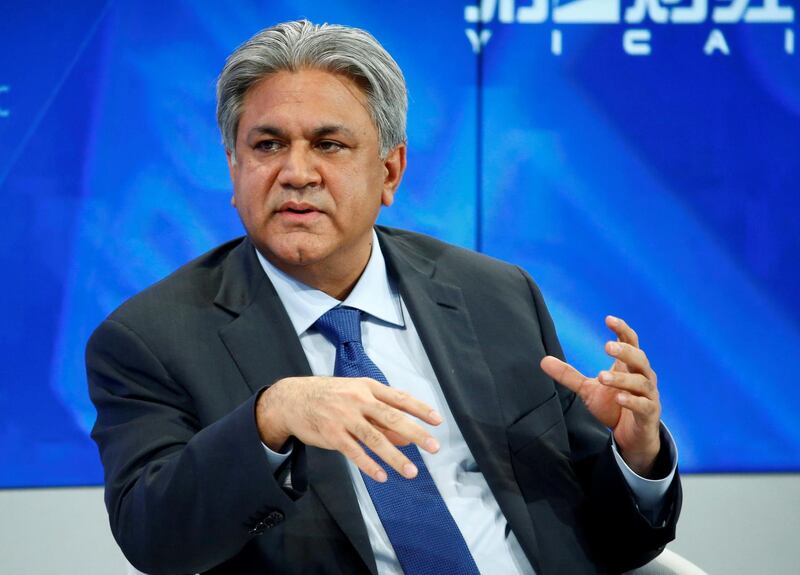Abraaj Group founder Arif Naqvi denied a Wall Street Journal report that at least $660 million (Dh2.4 billion) of investor money was moved, without the knowledge of most of them, into bank accounts linked to him, his family and the private equity firm.
More than $200m of that amount flowed from these accounts to Mr Naqvi and people close to him, WSJ said in an October 16 report citing company documents, bank statements and sources. Abraaj treasury accounts transferred these funds to Mr Naqvi's personal accounts at Deutsche Bank and Coutts & Company and to companies linked to him, his family and a former assistant.
"The allegations against me are entirely false and vehemently denied. They are premised on isolated extracts from illegally obtained documents that have been taken entirely out of context," Mr Naqvi said in a statement on Tuesday.
Mr Naqvi said all drawdowns were properly recorded and accounted for.
"I confirm that I have neither misused nor misappropriated any Abraaj funds," the 58-year-old executive said. "There was nothing untoward about my requests for transfers of Abraaj Group funds to me or my family, or for my personal investments or obligations. In drawing down funds from Abraaj, I acted in accordance with the arrangements put in place by the Abraaj Group."
Abraaj, which managed about $14bn of assets at its peak, went into provisional liquidation earlier this year. The company started to collapse this year following allegations of misuse of investor money in a healthcare fund. Investors of the fund include Bill & Melinda Gates Foundation, the World Bank’s International Finance Corporation, Britain’s CDC Group and Proparco Group of France. Abraaj has denied the allegations.
_________________
Read more:
Abraaj asked to vacate a DIFC office by end of the month
Abraaj business said to be Actis purchase target
_________________
The company also used its healthcare fund for "unauthorised purposes," the WSJ said, citing a legal letter from investors. More than $270m was sent to Abraaj treasury accounts, excluding fees, according to the letter and investigators' documents. At least another $390m was used from two other Abraaj funds, according to ' documents, the paper reported.
"As regards the use of monies from the healthcare fund, Abraaj sought and received independent legal advice as to whether it was permissible for it to use money from the healthcare fund for Abraaj’s general corporate purposes," Mr Naqvi said. "Subsequently, two international audit firms confirmed that all un-invested monies were accounted for and returned to investors in the healthcare fund with interest as of December, 31 2017."
The WSJ report also said that when Abraaj was seeking the sale of its stake in Pakistan's electricity provider K-Electric, Mr Naqvi tried to secure support for the transaction from Pakistan's then-prime minister Nawaz Sharif and his brother Shehbaz with a $20m payment to businessman Navaid Malik for his help in getting it.
Mr Naqvi, a Pakistani citizen, denied the allegations of any bribery.
"I can say unequivocally that I have never contemplated, directed, authorised or paid any bribes with respect to the K- Electric sale," he said. "It appears that unidentified individuals who are unfairly biased against me and Abraaj are seeking to undermine the sale of K-Electric, damage mine and Abraaj’s reputation, and thereby prejudice the creditors of the Abraaj Group," he said.







